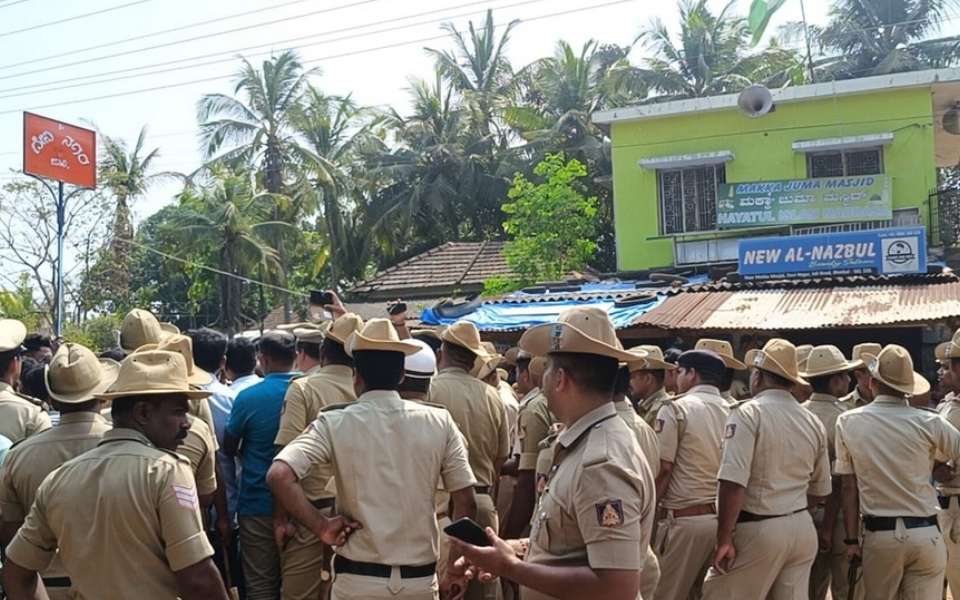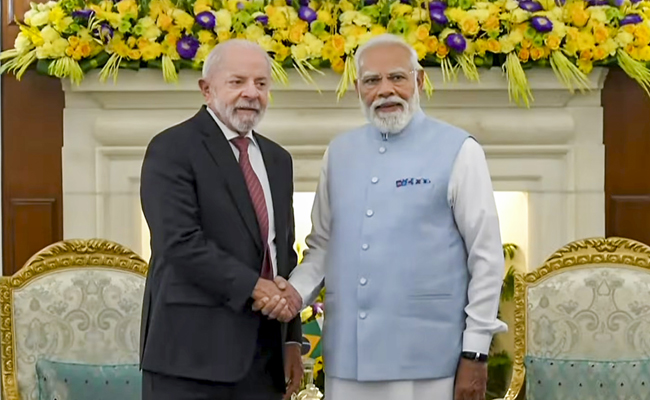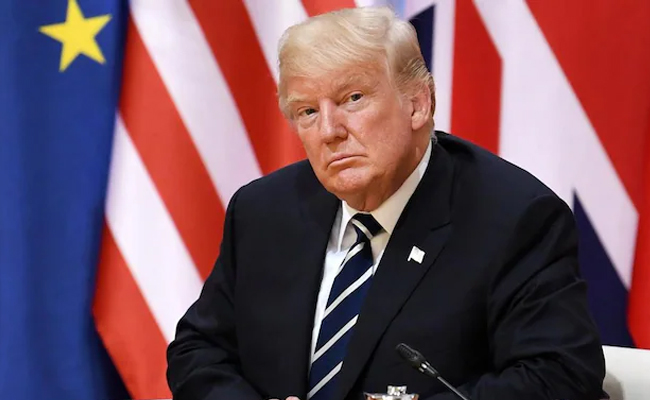Bhatkal: Protests continued for third day on Tuesday regarding the installation of a Devinagar board outside the Makkah Masjid at Second Cross on Jali Road here under Jali Patan Panchayat limits in Bhatkal. However, authorities did not grant permission for the installation. Protesters were directed to submit a written memorandum to the Jali Panchayat, which would then decide on the matter.
The controversy arose when, on Sunday, a stone board outside the Makkah Masjid was painted and rewritten as "Devi Nagar," with an attached pole. Mosque representatives alleged that Sangh Parivar workers intentionally sought to hoist saffron flags outside the mosque, a move they vehemently opposed. Subsequently, the pole was removed early Monday morning under police supervision.
Expressing their dissatisfaction, Sangh Parivar workers gathered outside the mosque to protest the pole's removal. Police convinced the protesters to disperse, assuring them of a meeting on Tuesday morning at the Tahsildar office to express their views.
ALSO READ: ATM card duping racket in Byndoor: People offer help at kiosks, return duplicate card to customers
In a meeting with Jali Panchayat councilors chaired by the Tehsildar on Tuesday morning, it was decided not to permit any board or pole installation outside the mosque. During the meeting it was decided to maintain status quo at the site. Panchayat members also emphasized the potential political motives behind creating tension in the lead-up to the parliamentary elections, urging the police and authorities to thwart such efforts.
Despite the agreed-upon meeting, BJP workers insisting on installing the board gathered outside Makkah Masjid and protested again. They expressed a desire to write "Devi Nagar" at a visible height without hoisting a flag. As they attempted to install the board, the police intervened, leading to verbal clashes. Tehsildar Tippe Swamy, Additional SP CT Jayakumar, Bhatkal DySP Shrikant, and other senior police officials were present during the confrontation.
Additional SP CT Jayakumar urged the protesters to submit their demands in writing or through a memorandum to the Tehsildar and the Panchayat. In response, Sangh Parivar and BJP workers, present during the incident, argued that the mosque's construction alongside a madrassa was illegal, calling for legal action against it.
Failing in their attempt to install the board, protesters marched to the Jalipatan Panchayat office, submitting a memorandum to the chief officer. The memorandum claimed the mosque's illegality, demanding legal action. Meanwhile, BJP leaders held a press conference near the Jali Panchayat, threatening action against other allegedly illegal buildings within its limits if the board installation was not allowed.
Let the Truth be known. If you read VB and like VB, please be a VB Supporter and Help us deliver the Truth to one and all.
New Delhi (PTI): India and Brazil on Saturday set a bilateral trade target of more than USD 20 billion in the next five years, after Prime Minister Narendra Modi held wide-ranging talks with Brazilian President Luiz Inacio Lula Da Silva, focussing in the areas of critical minerals and security.
Modi said the relations between India and Brazil have long benefitted from President Lula's visionary outlook and inspiring leadership.
He also noted that Brazil is India's largest trade partner in Latin America.
"We are committed to taking the India-Brazil trade beyond USD 20 billion in the next five years," the prime minister said in his media statement after the talks.
He asserted that when India and Brazil work together, the voice of the Global South becomes stronger.
Modi also said both countries agree that terrorism and its supporters are enemies of the entire humanity.





